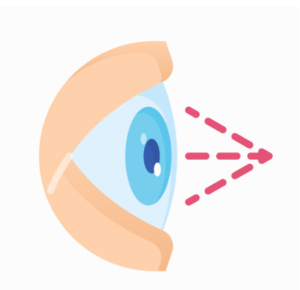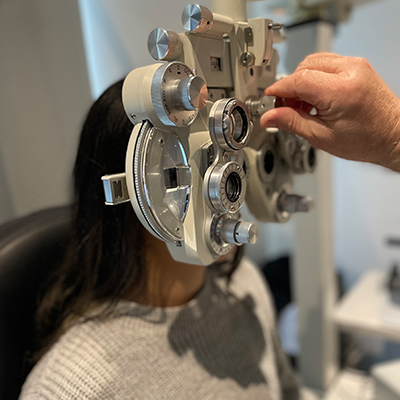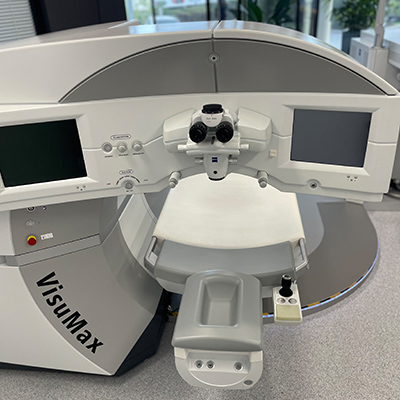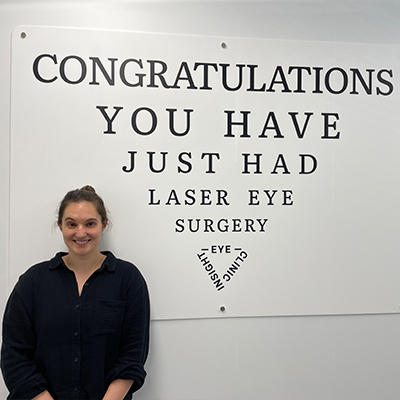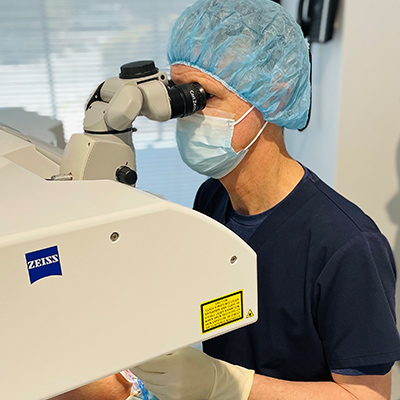Is Laser Eye Surgery Permanent?
One of the most common questions we are asked about laser eye surgery, is whether or not it’s permanent… and it’s a good question. But it does not have a simple yes/no answer.
There are several factors that determine the longevity and permanency of laser eye surgery. When people attend Insight Eye Clinic for a consultation, we do not just examine their eyes. Dr Furness also takes their medical, family & eye history into consideration. Suitability is a case-by-case basis. Typically, short-sighted patients have a smaller rate of enhancement than long-sighted patients. This is mostly due to the fact that short-sight (myopia) is more stable than long-sight (hyperopia). Hyperopic eyes have the ability to accommodate but this means that as they get older (especially beyond the age of 45) their accommodation ability decreases. The reduction in accommodation means that, if they’ve had laser eye surgery, hyperopia can creep back in.

Corneal Tissue is Permanently Removed
One of the ways we like to explain the topic of ‘permanency’ with patients, is to explain that the laser is removing tissue from the surface of the eye. The removal of corneal tissue is permanent and will not re-grow. So technically, the process of laser eye surgery, is permanent.
It is important to know that in the mid 40 age range, people begin to develop something known as presbyopia. This is an age related loss of near vision that is different and separate to myopia, hyperopia and astigmatism. The development of presbyopia as you reach your mid-40’s, can be corrected initially with near vision / reading glasses. You may wish to revisit your surgical options at a later option to have you out of near vision correctly entirely.
That does not mean to say that you cannot induce myopia upon yourself again. You can do this through overuse of your near vision. When our eyes spend more time focusing on near objects, like phones, screens, books or even knitting, it forces our eyeballs to elongate. This prevents the eye from focusing light onto the retina the way it should. This elongation increases short-sightedness, which causes distant objects to appear blurred.
 Will Your Vision Return to the Way it was Before Surgery?
Will Your Vision Return to the Way it was Before Surgery?
In most cases… No! But, if you had a small level of short-sight and you are someone that spends 10 hours a day in front of screens… then it is a possibility. Dr Furness can only ensure that he is correcting the prescription he is presented with at the time of surgery. As with most things… our fate is in our own hands as a result of the choices we make.
Can You Have it Done Again?
In most cases… Yes! Enhancements are required in less than 5% of treatments. During your consultation, Dr Furness ensures that should you require an enhancement, there is enough corneal tissue to perform one. In rare cases, a person might not be suitable for an enhancement based on their eye measurements. This will be known at the time of the consultation. If this is the case, Dr Furness will advise you of this and it is your choice whether or not you would like to proceed. This is most common in people with higher prescriptions. For this reason, most people are happy to still proceed because the benefits of being without glasses and contact lenses outweigh the potential risk of enhancement.
The policy at Insight Eye Clinic is that enhancements for laser eye surgery are free within the first 12 months of your primary surgery.
Please see other laser eye surgery blogs such as:
https://insighteye.com.au/why-laser-eye-surgery-should-be-put-on-hold-during-pregnancy-breastfeeding/



